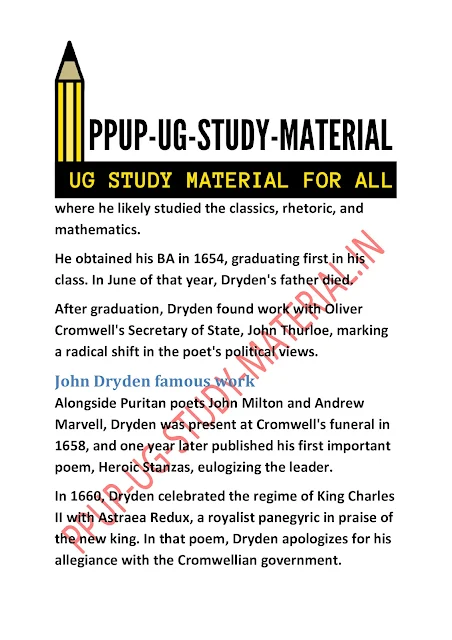Note on the Life and Works of John Dryden ( John Dryden biography PDF ) - ppup part 1 english honours notes and study material pdf
[ Note on the Life and Works of John Dryden ( John Dryden biography PDF ) - ppup part 1 english honours notes and study material pdf ]
In this BlogPost we'll cover These Topics - ppup part 1 english honours notes and study material pdf, PPUP part 1 english honours ug study material download, PPUP part 1 english honours ug study material free, PPUP part 1 english honours ug study material online, PPUP part 1 english honours ug study material pdf, PPUP part 1 english honours ug study material quora, patliputra university guess paper 2024 pdf, John Dryden works pdf, John Dryden famous work, John Dryden biography PDF, John Dryden as a poet PDF, Contribution of John Dryden to English literature PDF, John Dryden works in chronological order, John Dryden characteristics, John Dryden writing style, John Dryden famous poems, John Dryden belongs to which Age
Introduction to Note on the Life and Works of John Dryden
John Dryden famous work
Conclusion to John Dryden biography PDF
I hope You got what you were looking for ..reading this post Note on the Life and Works of John Dryden ( John Dryden biography PDF ) - ppup part 1 english honours notes and study material pdf ... and if you got any query ..you can comment below so we can provide you further assistance.









No comments